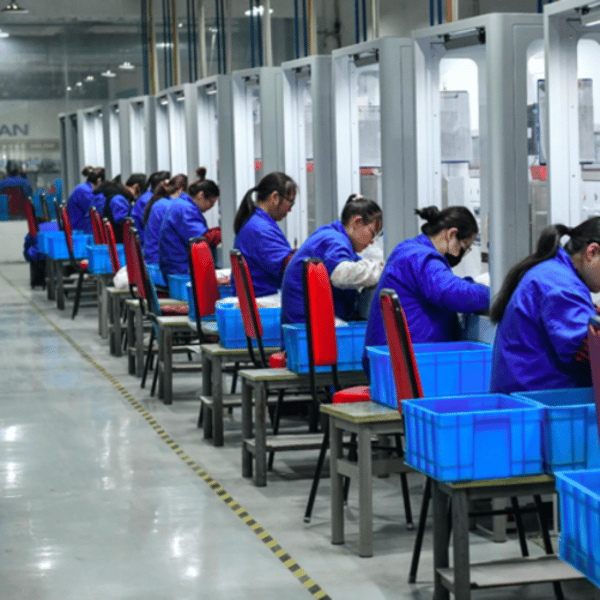By
AFP
Translated by
Roberta Herrera
Published
January 18, 2024
In 2023, China experienced its weakest growth in three decades outside the COVID-19 period, just as a housing crisis and economic uncertainties undermined the recovery of the world's second-largest economy.
China, hit by three years of COVID-related health restrictions, lifted these measures at the end of 2022, significantly rejuvenating its economy early last year. However, this resurgence has failed and has faced numerous obstacles, including a bleak outlook among households and businesses, which hampers consumption.
Unprecedented housing turmoil, high youth unemployment and a global slowdown have also hampered the traditional drivers of Chinese growth. However, in 2023, the country's gross domestic product (GDP) still increased by 5.2% year-on-year, the National Statistics Office (NBS) announced on Wednesday.
This performance exceeds last year's government target of “around 5%.” However, this figure, which would be the envy of most major economies, is still China's slowest pace since 1990 (3.9%), excluding the COVID-19 period.
On the other hand, if we compare the third and fourth quarters, which offers a more accurate view of the situation, the growth rate is significantly more modest (+1%). Chinese stock markets closed lower, with Hong Kong falling 3.7% and Shanghai losing 2%.
“A disappointing recovery”
“Last year, China experienced the most disappointing recovery imaginable. However, it is still a recovery,” said analyst Shehzad Qazi at research firm China Beige Book, highlighting that further support for economic activity will be needed in 2024. “Promote economic development” Last year was indeed a challenging task, acknowledged an NBS spokesperson, Kang Yi, during a press conference.
In December, retail sales, a key indicator of household consumption, slowed (+7.4% year-on-year), after a strong acceleration in November (+10.1%). Analysts surveyed by Bloomberg expected a less pronounced slowdown (+8%). Meanwhile, industrial production accelerated slightly in December (+6.8% year-on-year) after an increase of 6.6% the previous month.
As for the unemployment rate, it rose to 5.1% in December, compared to 5% in November. Among those aged 16 to 24, it stands at 14.9%, according to a new criterion that excludes students, after a record level in May. However, the unemployment rate offers an incomplete picture of the situation, as it only applies to urban workers.
It excludes millions of migrant rural workers from rural areas, a population more vulnerable to the economic slowdown, exacerbated by the housing crisis. This sector has long accounted for more than a quarter of China's broad GDP and has provided a major source of employment.
Real estate problems
Since 2020, Beijing has restricted access to credit for property developers to reduce their debt burden. The financial problems of emblematic groups such as Evergrande and Country Garden have fueled buyer distrust, amid unfinished properties and falling square meter prices. So far, Beijing's support measures for the sector have had limited impact.
In December, major Chinese cities once again recorded a month-on-month drop in real estate prices, according to data from the NBS. Of the 70 cities that make up the official reference indicator, 62 were affected (compared to 33 in January 2023, a sign of deteriorating conditions). The decline is especially pronounced in small and medium-sized cities, as highlighted by analysts at the investment bank Goldman Sachs.
For Chinese citizens, purchasing property has long been considered a safe investment to save. The fall in real estate prices is a serious blow to their financial portfolios. “Greater support for developers could ease concerns” about their financial health and revitalize this critical sector, said Michelle Lam, an economist at Société Générale bank.
Highly political and subject to skepticism, China's official GDP figure remains closely watched due to the country's important role in the global economy. This year, according to World Bank forecasts, China is expected to see its GDP slow to 4.5%. “The main obstacles remain the dysfunction of the real estate sector and the resulting low level of household consumption,” said RaboBank analyst Teeuwe Mevissen.
The government is expected to announce its official target in March.
Copyright © 2024 AFP. All rights reserved. All information displayed in this section (submissions, photographs, logos) are protected by intellectual property rights owned by Agence France-Presse. Consequently, you may not copy, reproduce, modify, transmit, publish, display or commercially exploit in any way the content of this section without the prior written consent of Agence France-Presses.












